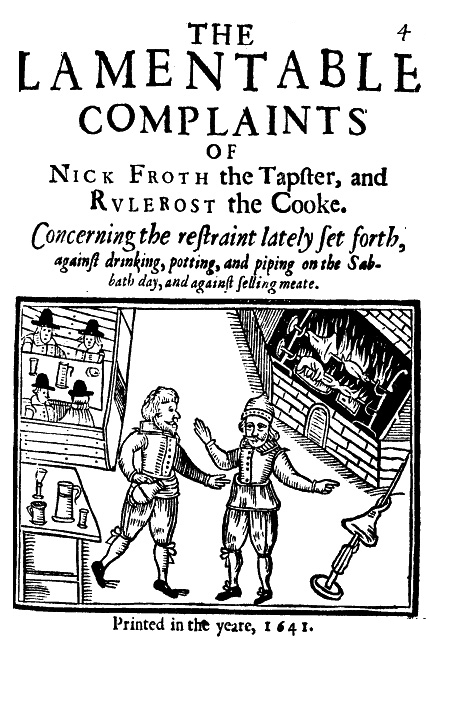Liberty Matters
No Way to Avoid Anachronistic Language

Steve, Iain, and Rachel seem to be moving towards a consensus view of what the Levellers represent and why they are important — one with which I have no disagreement. So I want to address an issue raised by Iain when he picks up J. C. D. Clark's claim that we should avoid using the word radical about political movements which did not use that term themselves.
There is a great deal to be said in favor of this proposal; but its proponents never seem to grasp just how impossible it would be to implement. It's easy, for example, to draw up a list of words that Iain himself uses when writing about the Levellers which they never used themselves and would never have encountered: deontological, axiomatic, ecclesiological. Much more important is the fact that they never used the words religion/religious, society/social, economy/economic, constitution/constitutional, or legislature in the senses we use them. (On religion, economy, and society, there are fairly extensive literatures, cited in my Power, Pleasure and Profit.) It is because, for example, they didn't have the normative concept of a constitution (as opposed to the descriptive concepts of aristocracy, democracy, and so on as different types of constitutions) that they talk of agreements and settlements, not constitutions. Steve tries to pick apart the idea of a settlement and asks whether and how it could be revised or updated; but that is to read back into their writing the sort of debates that arise once one has a written constitution that can only be altered by special procedures: it is not at all clear that they had this concept, or saw the Agreement in these terms.
All historical writing involves a fundamental problem of translation. This is obvious if we study texts in a foreign language; but it is equally important if we are studying English-language texts written even a few decades ago. (Think how words like liberal" shift and change in meaning.) The issue of interpretive charity is certainly real; but more immediately problematic is the task of conveying in our language ideas that originally were expressed in a quite different language. Easy solutions cannot be found. Take Clark's suggestion that we write about a "dissenting" tradition rather than a "radical" tradition. It won't help with the Levellers, who didn't use the term Dissenter and used the verb dissent to mean simply disagree, with no particular religious implication. Dissent (meaning religious nonconformity) is itself a much later category — if the OED is to be trusted (which I doubt), it originated with Burke, though dissenting goes back through the 18th century.
Less problematic might be Nonconformity, but even this I can find used only once in the Leveller texts. The Levellers are "radicals" in our understanding of the term, but it is certainly true that such language risks imposing a secular mode of thought onto people whose categories were often fundamentally religious (though I must say I have my doubts about Walwyn, who seems to me to have escaped from religious categories much of the time and who read Montaigne with pleasure). Lilburne wrote about the sovereignty of the people; but it is God's sovereignty which he invoked most frequently. It is important to point this out, yet substituting dissenting for radical may help for the 18th century, but not the 17th. The simple truth is that there is no way of avoiding an anachronistic use of language unless we opt to write in a pastiche of the language of the people we are studying; we must be constantly aware of the problem, but we cannot eliminate it.
Copyright and Fair Use Statement
“Liberty Matters” is the copyright of Liberty Fund, Inc. This material is put on line to further the educational goals of Liberty Fund, Inc. These essays and responses may be quoted and otherwise used under “fair use” provisions for educational and academic purposes. To reprint these essays in course booklets requires the prior permission of Liberty Fund, Inc. Please contact oll@libertyfund.org if you have any questions.